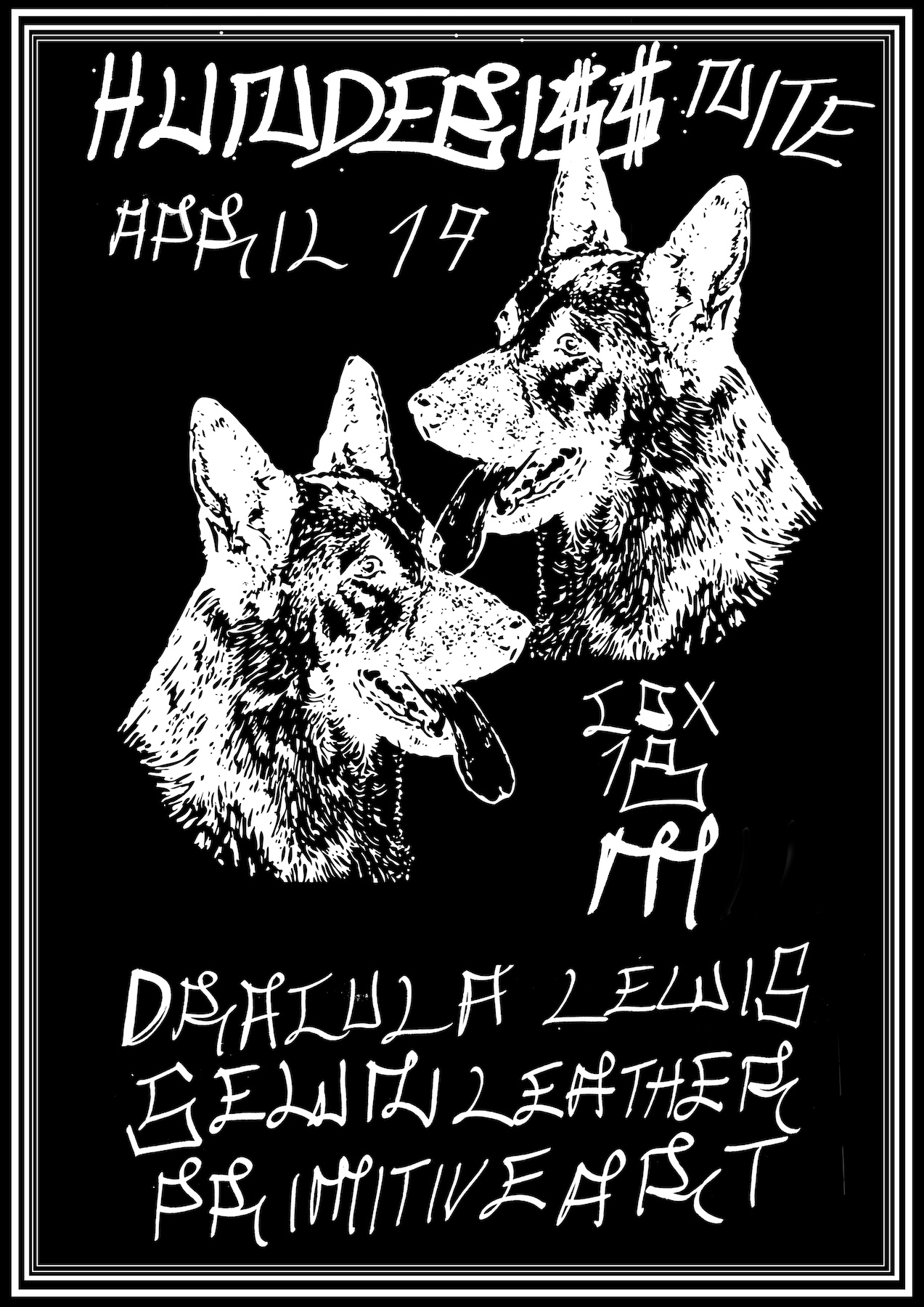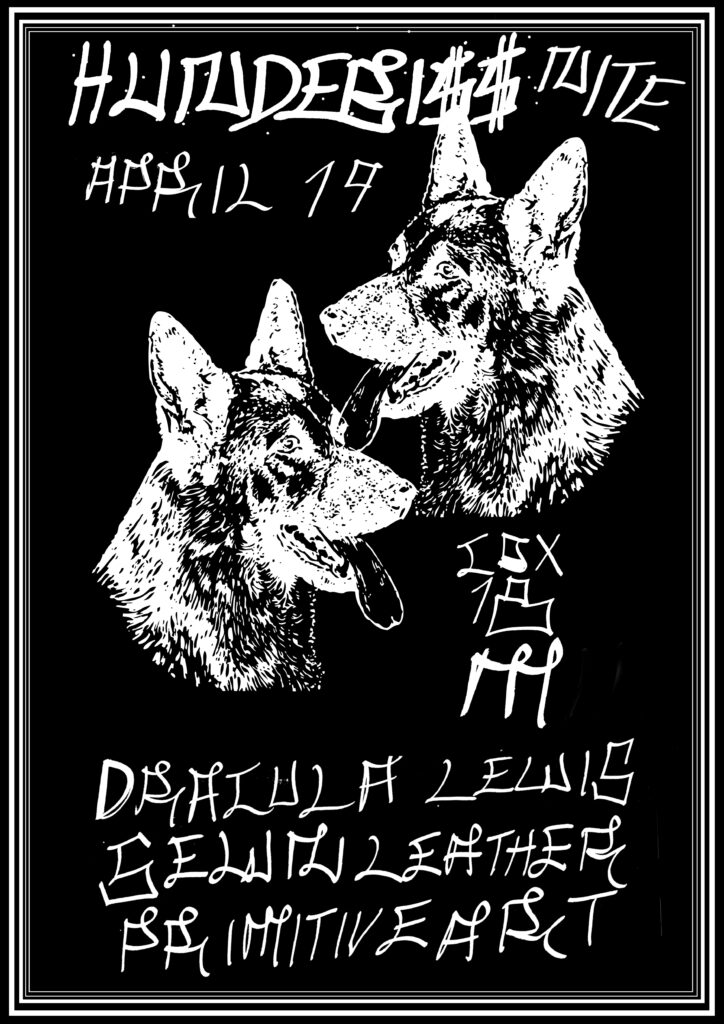
Hundebiss is Here to Stay, and Simone Trabucchi is Here To Party
Britannica describes folk music as music “passed down through families and other small social groups” which is “learned through hearing rather than reading.” In a 2014 interview with Tiny Mix Tapes, Simone Trabucchi said, “I’m doing folk music, I’m playing with cheap technologies. This cheap technology has a story; the language that technology develops has a story.” Nearly ten years later, this still rings true.
Trabucchi, who runs Italian record label Hundebiss, has never believed he was doing something out of the ordinary. He was living in the small comune of Vernasca, hours away from Milan when he started the imprint back in 2007, only with a goal of sharing music he loves. Just as folk music lives in oral tradition, so do the eclectic collection of sounds from Hundebiss.
Throughout the 16 year run, he’s released with the likes of Lil Ugly Mane, Hype Williams and more. What started as black market for niche music and an underground noise party has expanded into a respected independent record label—Trabucchi’s brainchild that evolves just as often as he does.
Arielle Lana LeJarde: Tell me the story of Hundebiss. What made you decide to transition to doing a label instead of just throwing parties and making music?
Simone Trabucchi: The early 2000s was a good moment for “noise music”. There were a lot of things happening in the US, UK, and all over Europe. There was like a nice scene—very, very active. Every week, there were people releasing dozens of tapes and CD-Rs. At the time, I was living with my girlfriend. We were very excited about the scene and we wanted to know more about it. So we started a little distribution [company]—buying stuff and re-selling to our friends here. From that, it was very easy to switch to the label.
Right after we started to set up Hundebiss nights in Milan because it’s such a big city and there was not much of that scene around yet so we felt like we were filling a gap in a way. For a few years, it was very, very good. The parties were quite weird. If you think about it now, it was so weird having just 50 or 100 people listening to someone playing a Behringer mixer in feedback. It’s very absurd. I feel like all the music now is a bit more functional and – somehow- predictable. Back then, it was really someone making white noise for 20 minutes and people were just there listening.
Arielle Lana LeJarde: How did people find out about your parties back in 2007? MySpace?
Simone Trabucchi: Yeah, MySpace. Probably a little bit of Facebook later. And then the community—word of mouth, People started talking about it.
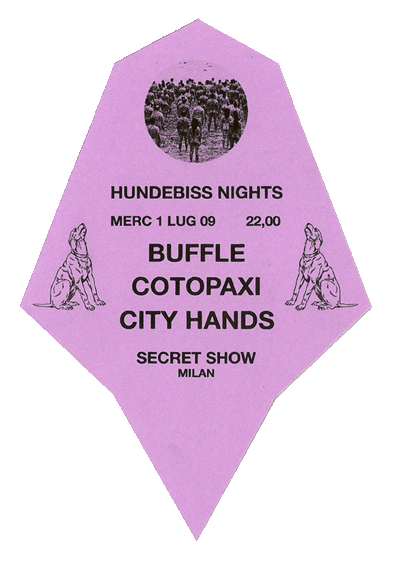
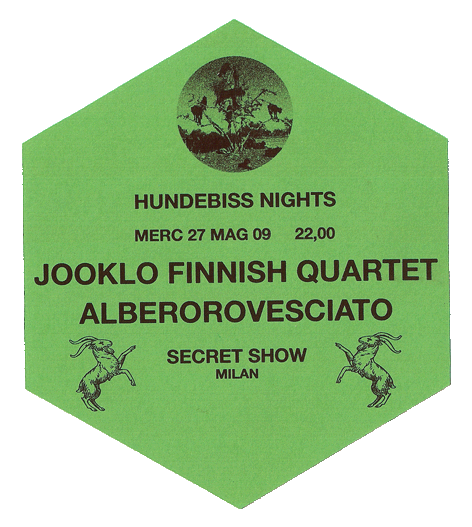
Arielle Lana LeJarde: That’s so cool. What’s your favorite memory from the Hundebiss secret show era?
Simone Trabucchi: In the beginning, we started this party in a Chinese bar. They had a secret door and there was a small room with the perfect sound environment. Every time you touched something or plug[ged] something [in], there was a shock. Very scary, but at the same time it was beautiful. [It was] a bit on the outskirts, not in the center, so the people that were coming were really into it.
Arielle Lana LeJarde: Is the bar still around?
Simone Trabucchi: No. We organized a year worth of programming, but after two parties, it closed down forever without notice.
Arielle Lana LeJarde: What can people expect from Hundebiss parties today?
Simone Trabucchi: Very good turnout. Very different. Usually it starts with a live show and then a DJ set, so the first part of the night is listening and the second part is more dancing. It’s doing super well. I think people like the fact it’s thrown in a squat that is very chill and that it’s different from going to a club. I have nothing against clubs, but it’s different.
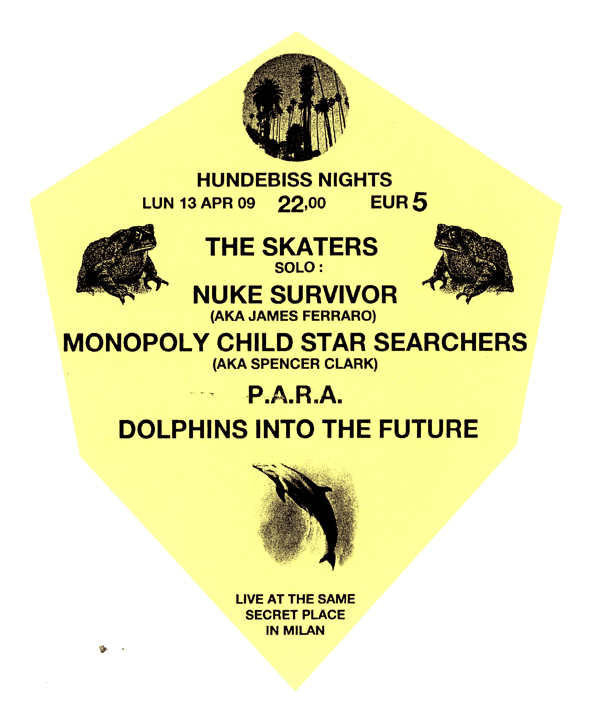
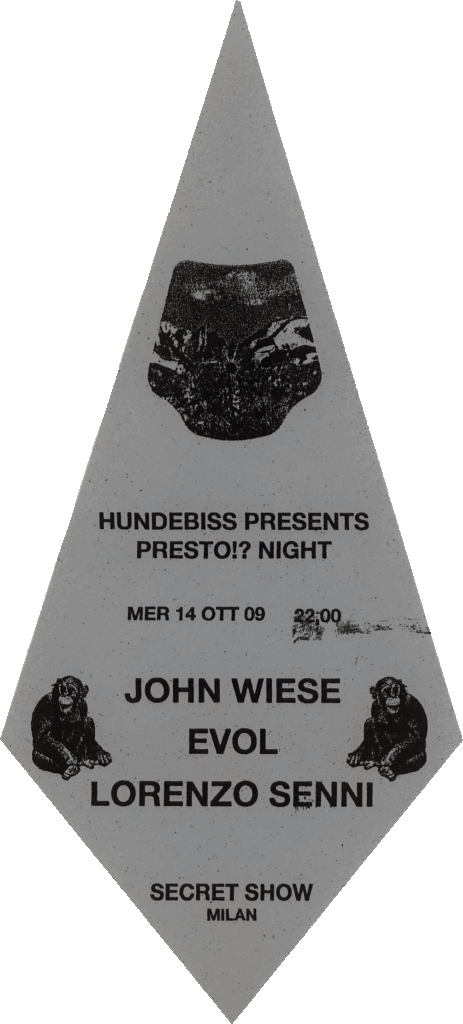
Arielle Lana LeJarde: Is the DIY scene in Italy poppin’?
Simone Trabucchi: I think it’s always been poppin’, to be honest. It goes through waves and it’s changing. Obviously, it’s adapting to times. The good thing in Milan is the same people you’re going to find in a DIY party are the same people you’re gonna find in a non DIY party, so it’s good. It used to be more of a political statement to throw or go to a DIY party. The political component of it is something I really care about. I don’t consider myself an activist, but I think I think it’s good to bring content into activists’ venue, and expose people to different things.
Arielle Lana LeJarde: What kind of statement do you want to make?
Simone Trabucchi: I don’t want to make any statement. To be honest, I don’t feel myself politically committed because it’s too complicated for me. But I care because I grew up in an anarchist environment and these people have always been open and nice to me.
Arielle Lana LeJarde: That’s fair. In 2014, you made a statement that Hundebiss was “doing folk music for the Twitter age.” But now that it’s almost a decade later, does that still ring true?
Simone Trabucchi: I still like the idea of folk music. I like the idea that most music is folk music for our age. That’s a bit of a provocation because I don’t really believe there is much experimentation these days. It’s very easy to be labeled as “experimental” right now because they don’t know where to put you in. So I still think I’m releasing folk music and I’m making folk music because my sound references are folk. For instance, I think trap is super folk. It’s always been folk, vernacular.
Arielle Lana LeJarde: How do you balance running a label while also having your own music project?
Simone Trabucchi: I think it’s all part of the same thing. You can definitely tell when I was more into certain things, musically. But I also don’t think that the sounds of the artist I’m releasing get inside my music automatically, but maybe thematically sometimes.

Arielle Lana LeJarde: So do you feel like the transition from Dracula Lewis to STILL reflected in the label as well?
Simone Trabucchi: A bit, yeah, definitely.
Arielle Lana LeJarde: With a label known to release in physical format, why did you start Digital Hundebiss?
Simone Trabucchi: Because physical format is a pain in the ass! It’s super expensive to produce and absolutely not sustainable on any level—for the planet, for myself economically, or for the artist. An artist is expecting to get some money out of a record, which is hard with physical. But I’ll tell you the truth people are much more happy. I also like the fact that it’s more immediate. [Digital Hundebiss] is doing well because people are buying the tracks they want to play in a party the day after.
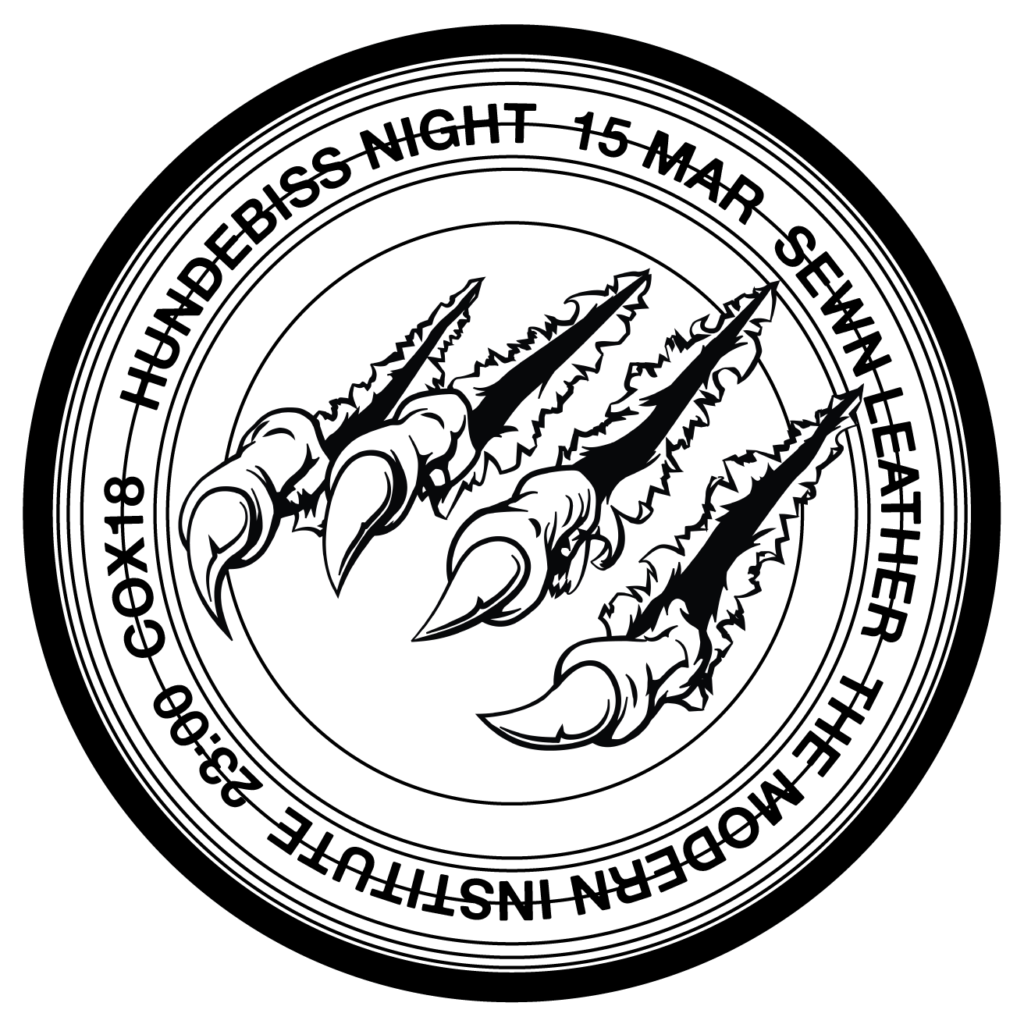
Arielle Lana LeJarde: How did the vinyl delay debacle during the pandemic affect the label?
Simone Trabucchi: Quite a lot, because everything was getting super slow. Producing a vinyl was taking almost one year. But it was also nice to see the reaction of the people. Right during the pandemic, we released a record with Muqata’a, but vinyl came out exactly one year after. I was expecting many people to cancel their order, and ask for a refund, which would have been like a massive problem for me. Nobody asked for a refund. This kind of loyalty and support was quite impressive to see.
Arielle Lana LeJarde: As someone who has a penchant for the physical format, what do you think about NFTs?
Simone Trabucchi: I was trying to understand what was going on, but I didn’t find my place in there. Not yet, at least. It’s definitely interesting and I think there are some people that are doing some intelligent stuff. But I don’t know. It’s a bit too nerdy for me. Too far away from my daily life maybe? I’m still very analog somehow.
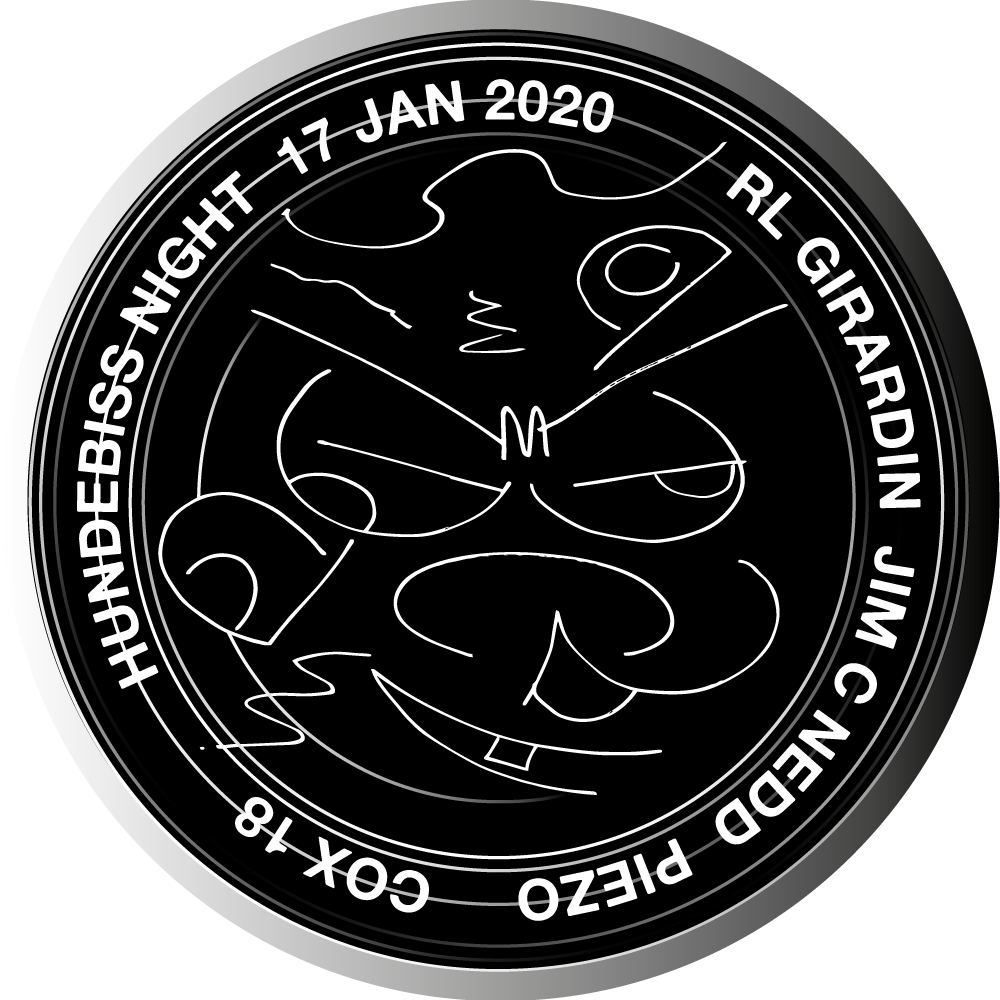
Arielle Lana LeJarde: What about AI?
Simone Trabucchi: I have nothing against it, actually. AI is a tool. I like it to be honest… I found my way through Chat GPT and now it’s a tool that I use quite consistently. I don’t think it’s much different than Google. I’m not anti-technology and have never been.
I don’t even think it’s affecting any artistic product, so I’m not worried. I don’t think you can replace an artist. But you don’t even need to be an artist. I don’t think you can replace a human. We are too dysfunctional to be replaced.
